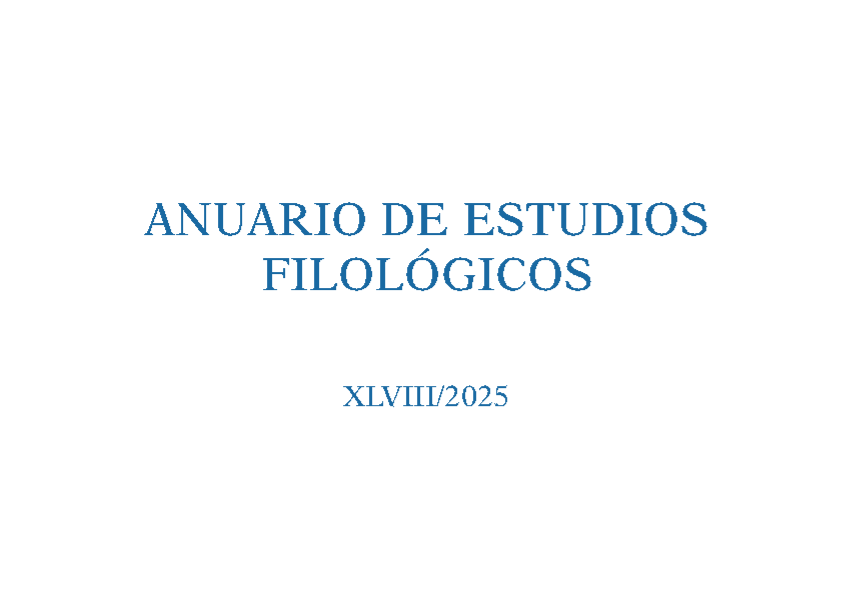Corpos do drama by Nanda Gárbero: the Brazilian dramatized rewritings of Medea and Ismene as a preface to Trilogía del odio
DOI:
https://doi.org/10.17398/2660-7301.48.7Keywords:
Classical tradition, Latin American theatre, Greco-Latin theatre, Classical mythology, Brazilian rewritingAbstract
In 2022 Maria Fernanda Gárbero published Antígona Bel: uma peça pandêmica, a rewriting of the myth set in Rio de Janeiro. In 2023 it was translated into Spanish by the magazine Acotaciones . In 2024 she signs as Nanda Gárbero Corpos do drama (duas peças), which includes Medeia do fim do mundo (peça em 2 atos) and A irmã de Antígona (nove cenas curtas). We propose to analyse the resignification of the two pieces that compose Corpos do drama to determine whether these perspectives and the classical tradition itself are claimed, if they react or collide, what values are reproduced in this highly symbolic paratext and analyse whether its revision and deconstruction is due to a timely exhausted discourse or provides other more symbolic looks than the stereotype it represents.
Downloads
References
BARBOSA, Tereza Virgínia R. (2009): «Tradução inclusiva e performativa: dossiê de um processo tradutório». Nuntius Antiquus, 4, 119-137 (http://dx.doi.org/10.17851/1983-3636.4.0.119-137).
CORIA, Marcela (2017): «Medea carioca: una lectura de Gota d’água, de Paulo Pontes y Chico Buarque». En Pricco, Aldo R. y Moro, Stella M. (coords.): Pervivencia del mundo clásico en la literatura: tradición y relecturas. Coimbra: UC, 229-237 (https://doi.org/10.14195/978-989-26-1439-7_21).
DA SILVA, Renato Cándido y DE ARAÚJO, Orlando Luiz (2023): «Antigone`s Myth in Brazilian Theater: Brief Notes». En Morais et al. (2023: 43-75).
GÁRBERO, Maria Fernanda (2020): Madres de Plaza de Mayo. À memória do sangue, o legado ao revés. London: Novas Ediçôes Acadêmicas.
GÁRBERO, Maria Fernanda (2023): «Morales, Helen. Presença de Antígona: o poder subversivo dos mitos». Revista Brasileira de Estudos Clássicos, 36, 1-3 (https://doi.org/10.24277/classica.v36.2023.1070).
HADDAD, Alice et al. (2023): «O texto grego é sempre o ponto de partida e o de chegada: entrevista com a tradutora e docente Glória Braga Onelley». Cadernos de Letras da UFF, 34.67, 19-41 (https://doi.org/10.22409/cadletrasuff.v34i67.61144).
HÖRSTER, Maria António y LEÃO, Delfim F. (2023): «The Dynamics of a Brazilian Collective Appropriation of Euripides’ Medea: The ΤRUΠΕRSΑ Experiment» En Morais et al. (2023: 505-526).
MORAIS, CARLOS et al. (eds.): Greek Myth Heroines in Brazilian Literature and Performance. Boston: Brill.
NUÑEZ, Carlinda Fragale P. y BARBOSA, Tereza Virgínia R. (2023): «Ismene, the Princess of Thebes and the (Post-)Modern Páthos». En Morais et al. (2023: 156-180).
PÉREZ GÓMEZ, Leonor (2018): «Del mito de Medea al “Síndrome de Medea”». Florentia Iliberritana, 29, 211-238.



